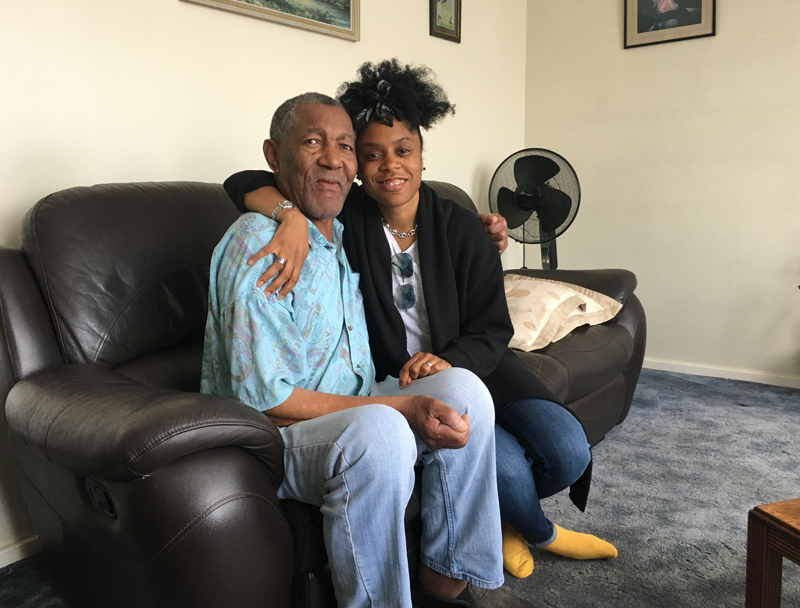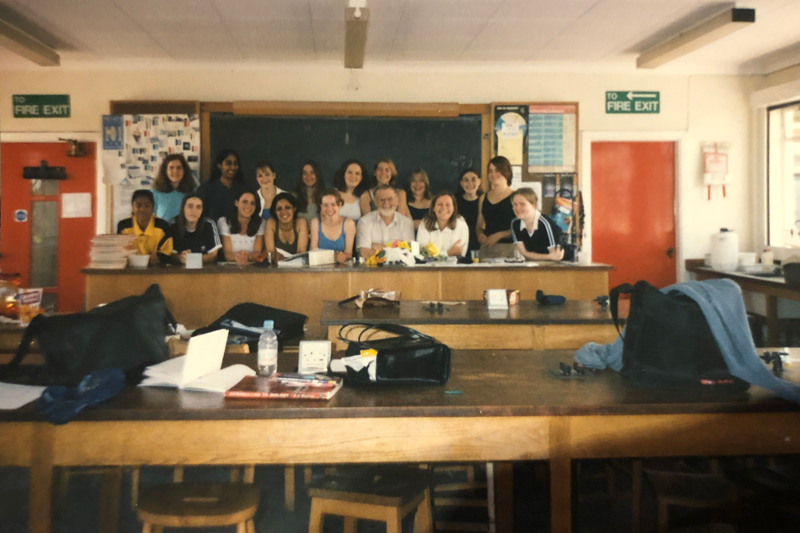Youth violence has increased significantly in the past decade. Iesha Small talks to Jess Staufenberg about trying to turn the tide
Iesha Small can remember students she once taught who have lost their lives to youth violence. The head of change at the Youth Endowment Fund – a charity to reduce youth violence – was once a Teach First trainee and worked in London.
But it wasn’t just her students in inner-city schools who were at risk from youth violence: she also later taught in “leafy” Hertfordshire, and every year there was a walk “in memory of a boy who had been stabbed to death”.
“This stuff doesn’t just happen in London,” she tells me. “There are youth violence hotspots all around the country.” Of five priority areas in which her organisation is currently piloting approaches for tackling youth violence, four are cities, but the fifth is the rural, coastal region of Norfolk.
Rising national knife crime among young people has been increasingly making headlines in national newspapers. In 2019-20, offences involving a knife reached 48,700, considerably higher than 32,400 such offences in 2010.
Even though there was a drop this year due to the pandemic, it’s still 27 per cent higher than a decade ago. The West Midlands police force, not London’s, recorded the highest rate of knife crime incidents.
There’s also evidence the picture is starting to worsen again. In the first quarter of 2021, knife or offensive weapons possession was two per cent higher than in the first quarter of 2020.
And the violence “disproportionately impacts the young and disadvantaged,” warned a House of Commons library report in September. Young people between ten and 17 years old accounted for about one-fifth of everyone sentenced for possession of a knife or weapon this year, it says.
Youth violence is not just knife crime, but any physical violence between young people. (However, a noticeable issue is the lack of government data on youth violence in all its forms, with reports split instead into ‘knife crime’ or ‘county lines involvement’, instead of overall figures.)
After the 2011 London riots, a follow-up government report said various national strategies had “failed”. Yet in the ten years since, the data shows ministers have continued, largely, to fail.
Enter the Youth Endowment Fund in 2019. The charity was set up by Impetus, the private equity foundation that supports charities working with young people, with a £200 million endowment and ten-year mandate from the Home Office.
It’s a “what works” organisation, says Small, focused on finding and funding interventions that show promise in reducing youth violence. It also shares research (its ‘Evidence and Gap Map’ is well worth reading, ranking interventions based on the strength of their research base) and builds partnerships with local authorities and schools.
But how much can schools do?
There’s a tension here, which began to bother Small during her 14 years in teaching (she reached assistant head before leaving in 2016). School leaders told Ofsted in 2019 that young people involved in knife crime are more likely to be low attainers. But Small’s view is that improving attainment is not anywhere close to the answer.
“I thought, as a Teach Firster, that education was the magic bullet – that if people have access to great teachers, that can change lives. But it doesn’t, not as comprehensively as people think it can.”
As a Teach Firster, I thought that education was the magic bullet
It’s a bold and brave statement, and one she admits is a “heartbreaking realisation as a teacher”.
She recalls students who have died. “It doesn’t matter how good my maths teaching was, I couldn’t save them. An excellent maths lesson is not going to change the life circumstances of a young person, and to pretend that it does is disingenuous.
“And actually, it makes me feel uncomfortable when politicians talk this way, because it puts the onus on schools, rather than on politicians to make society better.”
Three years ago, Ofsted published recommendations on knife crime, noting: “The most dangerous time for children is shortly after school, between 4pm and 6pm.”
Youth violence is often just beyond the school gate. So schools are still crucial partners in tackling youth violence, says Small. “I can see why politicians put so much on school, because it’s the one place young people are going to be.
The most dangerous time for children is shortly after school
“As a teacher, I could definitely identify who might be involved in violence.” Youth work has also been “decimated”, she adds, so schools are an even more key source of information and intervention.
But not many schools, particularly mainstream schools, are aware of the YEF, says Small, although they will know the Education Endowment Foundation (EEF), which operates a similar ‘what works’ model.
Now, the YEF and EEF are launching a ‘joint grants round’ in 2022 on “improving school presence”, looking at how school attendance, exclusions and risk of youth violence interlink. Although it’s early days, Small says schools may be able to bid for funding. It shows schools continue to be seen as key partners against – and places relevant to – youth violence.
Issues around school attendance is something Small herself has personal experience of. She was brought up by parents, and a granddad, keen to give her good opportunities: there was a sense that black children were being failed by the UK education system, and that standards weren’t as high as schools back in Jamaica.

They sent her to a grammar school in Sutton, south London, and Small says she benefited from her ambitious peer cohort, going on to UCL to study engineering. But she was also an odd-one-out, because so few people were from a similar background: “I was definitely one of the only people from a working-class background at that school.”
Having always loved school, Small says she hit a bad bout of depression in sixth form and soon stopped attending lessons. “I would still come into school, because school was a bit like a safe place, but I used to sit in the library. My form tutor used to check in with the librarian, my friends and parents.”
This approach worked for Small. “If someone had been all up in my business about not attending lessons, I imagine I would have stopped going completely.”
Eventually, Small felt able to revise for her exams (she remembers cramming on Christmas Day with her neighbour’s children playing a Spice Girls CD at full volume next door).
Her story shows “school presence” is not a black-and-white issue: being able to attend school, but allowed to remain out of lessons, made all the difference to Small.

Perhaps partly because of these experiences, Small is particularly interested in mental health and family support for vulnerable young people.
At the Centre for Education and Youth, where she worked for four years, she directed a series of videos, each showing new teachers how to support a different additional need in pupils – this is one of her proudest pieces of work, she says.
Now, she is turning her focus to family support. The YEF has opened applications for between £5 million and £10 million of funding for projects helping families and carers provide a more supportive environment for young people.
It has four strands, says Small: domestic violence interventions, reducing parental conflict, a parenting programme and family therapy interventions.
So as head of change for education and families, Small is able to spearhead interventions in both pupils’ school and home lives in a way she too often felt she could not as a classroom teacher.
The challenge is vast, though. The government is trying to take action – in July it announced £45 million for schools to tackle youth violence, and the previous month announced “violence reduction units” to deliver interventions (including cognitive behavioural therapy for young people, as recommended by the YEF). But in both cases, experts have blasted the cash as insufficient.
“All of my moves have been about trying to impact young people in society, and now I’m focused on doing the things teaching can’t,” says Small. “It’s a very complex problem, and to solve it needs partnership.”














Your thoughts